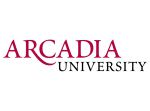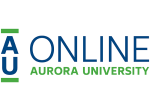
For academic fields in health and wellness, general health is one of the most far-ranging, diverse, and multi-faceted areas of study. An online general healthcare degree will give you almost unlimited options compared to other types of health degrees.
For example, suppose you complete a degree in radiology. In that case, you’re likely to work as a radiologist or health-diagnostic professional. But imagine you complete a general health degree. In that case, you could work in scientific studies, public health education, or in roles supporting medical professionals.
ARTICLE NAVIGATION:
- Online General Healthcare Degrees: Certificate | Diploma | Associate | Bachelor | Bachelor Completion | Graduate Certificate | Master’s | Professional Certificate | Doctorate
- Accreditation of Online General Healthcare Degrees
- Can an Online General Healthcare Degree Meet Licensing Requirements?
- Licensure and Certifications for Healthcare Careers
- Careers with an Online General Healthcare Degree
Online General Healthcare Degrees: A Variety of Academic Levels
There are many different levels that you might study if you want to complete an online general health program. The final choice will depend on your career goals and current education. Still, the most common are graduate certificates and master’s degrees in general health. These graduate-level programs often lead to careers as medical educators. With a master’s in general health, you could also work as a clinical researcher.
Certificate
Certificates, which can be completed online, are generally for students without college experience who want to enter the healthcare field. They prepare you for many careers, including medical assisting. Accredited programs for the medical assistant profession will also qualify you for certification testing through the National Commission for Certifying Agencies, which is part of the Institute for Credentialing Excellence.
All you need to enter a certificate program is a high school diploma or equivalent. Correspondingly, you will need to send your transcripts or GED scores before enrollment.
GetEducated's Picks
- Pinnacle Career Institute Medical Assistant Certificate
- Point University Certificate in Medical Assisting
- Cossatot Community College of the University of Arkansas Technical Certificate in Medical Assisting
Diploma
A diploma is a good choice if you want a fast track to a career in the medical industry. These online general health programs allow you to gain a basic knowledge of healthcare so you can enter this rewarding field with minimal education and no previous experience. With a diploma program, you can be career ready in as little as 12 months.
While they are helpful for starting a career, they can also be added to a professional’s current skillset, providing additional training. Healthcare diplomas are available in subjects like medical assisting, optometric technician, aromatherapy, and more. They can be completed entirely online.
GetEducated's Picks
- Penn Foster Home Health Aide Diploma
- Penn Foster Medical Assistant Career Diploma
- Penn Foster Optician Exam Prep
Associate
General healthcare associate degrees are usually built around specific technical skills and careers. You will find options such as clinical sleep health, integrative health sciences, histotechnology (the detection of microscopic tissue diseases), and Could not look up school using "23946"!, among many others.
Associate degrees in general healthcare typically prepare you for a specific career. A medical assistant degree, for example, qualifies you for certification as a medical assistant and prepares you to work in this profession. An associate in mortuary science prepares you for a career as a mortician, although this career requires additional experience. Graduates with an associate degree are prepared for entry-level positions in the funeral service, including administrative assistant, planning support, and organizing funerals.
Associate degrees usually take three years or less, and many can be completed entirely online. Entry requirements in these programs are generally light. Generally, a high school diploma or equivalent is all you need to be accepted in these programs.
GetEducated's Picks
- Penn Foster Medical Assistant A.S. Degree
- Lenoir Community College Associate in Applied Science in Polysomnography - Transition
- Point University Associate of Science in Medical Assisting
Bachelor
A bachelor’s degree has become the standard level of academic achievement. In fact, this education is often required by many employers, including organizations in healthcare. These degrees are for students who are starting a college education and have no other academic experience. Like an associate degree, these programs come in many fields, ranging from broad to specific.
For example, you can complete a bachelor’s in general studies of healthcare, which includes aspects of healthcare management, ethics, and cultural perspectives, giving you a broad understanding of the industry. Or you could complete a degree in Could not look up school using "23946"!, focusing specifically on diet and nutrition.
Bachelor’s degrees usually have higher standards for enrollment. In the first place, you must have a high school diploma, and you may have to complete an interview with the college’s staff. These online general healthcare degrees can be completed in four years, and they can additionally be completed entirely online.
GetEducated's Picks
- Aurora University Bachelor of Science in Healthcare Administration
- Maryville University Bachelor of Arts in General Studies / Healthcare
- Saint Francis University Bachelor of Science in Interdisciplinary Healthcare Studies
Bachelor Completion
These programs are designed specifically for people with some academic experience who have not completed a bachelor’s degree. These options may be suitable for you if you already have an associate’s degree or have taken some college courses but could not finish your degree. Basically, these programs are ideal if you have started college but never completed a bachelor’s.
Exactly how long they take depends on how much you have already studied. Your previous courses and remaining classes will take roughly four years altogether, just like a typical bachelor’s degree.
These programs are available in many of the same topics as standard bachelor’s degrees. You can study fields such as echocardiography, sleep science, and even mortuary science. You can also find bachelor-completion degrees in general healthcare or healthcare management. The programs can be completed entirely online.
GetEducated's Picks
- The George Washington University Bachelor of Science in Health Sciences / Clinical Research Administration
- Oregon Institute of Technology Bachelor of Science in Echocardiography
- University of North Carolina at Chapel Hill Bachelor of Science in Neurodiagnostics & Sleep Science
Graduate Certificate
Healthcare professionals who want to enhance their careers should consider a graduate certificate. Graduate certificates are designed for people who have completed a bachelor’s degree but wish to learn more about a specific subject. Online graduate certificates can boost many different careers. They allow you to sharpen your skills and expand your knowledge in many subjects, particularly bioethics, clinical research, and healthcare administration.
These programs can be completed quickly. The courses, which are available entirely online, typically consist of five or six courses, allowing you to enhance your skills in less time than a full degree program.
GetEducated's Picks
- Benedictine University Graduate Certificate in Epidemiology
- Brenau University Graduate Certificate in Healthcare Management
- Benedictine University Graduate Certificate in Health Education & Promotion
Master
Suppose you have completed a bachelor’s degree and are working in a healthcare or health science profession. In that case, you can enhance your career and earning potential with a master’s degree. While a bachelor’s degree can be more broad in scope, a master’s is generally more focused and specific.
One of the most common subjects for a master’s in general healthcare is education. Many of these degrees train current professionals to educate the next generation of medical and healthcare experts. A master of science in healthcare education, for example, gives healthcare professionals the skills they need to teach formal courses, allowing them to become healthcare educators. These programs will prepare you for licensing as a Certified Health Education Specialist (CHES).
To enroll in a master’s degree, you need a bachelor’s in a related field (with a strong GPA, often 3.0 or better), and you likely need to be certified and working in the profession. For example, suppose you want to complete a master’s in clinical laboratory science. In that case, you will need up-to-date certification as a medical laboratory professional from the American Society for Clinical Pathology.
It’s possible to complete a master’s in general health entirely online, although some require some in-person components. Before enrolling, check the requirements of the particular program you are interested in.
GetEducated's Picks
- Arizona State University Master of Science in Health Care Simulation
- Benedictine University Dual Master of Public Health / Master of Science in Management & Organizational Behavior
- Arcadia University Master of Public Health
Professional Certificate
Professional certificates are similar to graduate certificates in many ways, but some significant differences exist. Namely, a professional certificate is (in general) for people with no previous academic experience in this area and who want to develop specific technical skills.
For general healthcare, you will find 100% online professional certificates for a specific career, such as Could not look up school using "24200"!. You can also find professional certificates focused on healthcare economics and outcomes research. These programs are often the fastest route to a healthcare career, allowing students to complete training in a few months. In some cases, they can be completed in just weeks.
GetEducated's Picks
- University of Washington Professional Certificate in Health Economics & Outcomes Research
Doctorate
These programs will not make you a medical doctor. However, online general healthcare doctorate programs will give you the skills to become one of the top experts in healthcare and the science behind wellness and medical issues.
Like the master’s degree, many doctorate programs focus on education. Degrees like the Doctorate of Philosophy (Ph.D.) in Medical and Health Professions Education are common. However, there are also degrees in Could not look up school using "23946"!, acupuncture, and many other subjects.
To be accepted in these programs, you need a master’s degree or a professional doctorate. Many programs also prefer applicants to have at least one year in an education role or three years in a health profession. Doctorate programs are available 100% online.
GetEducated's Picks
- A T Still University of Health Sciences Doctor of Education in Health Professions Education
- Allen College Doctor of Education in Health Professions Education
- Pacific College of Health & Science Transitional Doctor of Acupuncture
Accreditation of Online General Healthcare Degrees
Accreditation, the process of verifying the overall quality of education, is critical when searching for online general health degrees. Groups who review and monitor an institution or program determine the accreditation. Regardless of your healthcare degree, verify that your school is accredited before enrolling and paying tuition.
For general health, there are numerous accrediting bodies. There is institutional accreditation, which applies to an entire college or university, as well as programmatic accreditation, which accredits a specific program.
General health programs often have specific accreditation. For example, they may be accredited by the Commission on Accreditation of Healthcare Management Education (CAHME). This organization accredits programs granting master’s degrees in healthcare management, leadership, and administration.
Resources:
Can an Online General Healthcare Degree Meet Licensing Requirements?
Yes. Whether a license or certification is required or preferred, an online general health degree can meet licensing requirements. For example, a certificate in medical assisting from a program accredited by the Accrediting Bureau of Health Education Schools or the Commission on Accreditation of Allied Health Education Programs will allow you to test for a medical assisting license.
Resources:
- Accrediting Bureau of Health Education Schools
- Commission on Accreditation of Allied Health Education Programs
Licensure and Certifications for Healthcare Careers
While most medical careers require licensing and certification, jobs that come from general health degrees do not.
Many certificates and associate degrees prepare you for a career as a medical assistant. This job requires licensing in a few states. Other occupations, such as dietitians and nutritionists, only need licensing in a select handful of states. But most of the careers do not require licensing for most positions. For example, suppose you work as a medical services manager. You likely won’t need licensing or certification unless you work in a nursing facility.
Many people complete general healthcare degrees in healthcare education. You may need licensing in your specific area of expertise to be an educator. Let’s say you are a nurse, which requires licensing, but want to end your career teaching future nurses, so you complete a degree in healthcare education. In this case, you will need to maintain licensing to teach nursing.
Resources:
- US Bureau of Labor Statistics - Medical Assistants
- US Bureau of Labor Statistics - Medical and Health Services Managers
- National Library of Medicine - Certified Health Education Specialist
Careers with an Online General Healthcare Degree
Because there are so many types of general health degrees online, it’s hard to describe what a typical career will look like. The degrees are numerous, so the jobs are numerous as well.
Here’s the overall outlook and career information for some of the most common general healthcare careers. As you can see, many general health careers are both stable and financially rewarding.
Median Annual Salary | Minimum Education | Training or Experience | Licensing | Expected Growth | Jobs by 2031 | |
|---|---|---|---|---|---|---|
| Health Services Manager | $101,340 | Bachelor | Some experience required | Only for nursing home administrators | 28% | 616,900 |
| Medical Scientist | $95,310 | Doctorate | None | Only when administering drugs, therapies, or medical care | 17% | 140,000 |
| Epidemiologist | $78,830 | Master | None | None | 26% | 10,900 |
| Dietitian | $61,650 | Bachelor | None | Varies by state | 7% | 80,000 |
| Health Education Specialist | $60,600 | Bachelor | None | Required by some employers | 12% | 64,200 |
| Medical Assistant | $37,190 | Post-secondary certificate | None | Required by some employers | 16% | 861,300 |
Start Your Career with a Top-Quality Online General Healthcare Degree
If you are ready for a high-quality career in healthcare, review the available general health programs online and submit your information. All the degrees in our database are available at least 80% online, making them the ideal choice for completing your education on a busy schedule!







